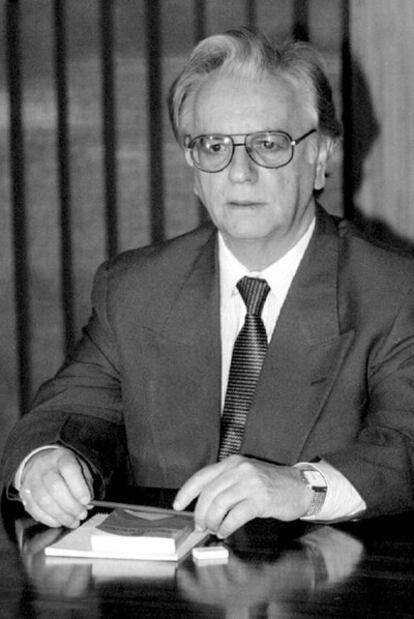Itamar Franco, the key to Brazil's economic progress
Former president died last week in São Paulo
He was an unexpected president, yet a decisive one. Itamar Franco, who died in São Paulo on July 2 from leukemia, at age 81, was the politician who first set Brazil on a path to progress that today, nearly 20 years later, has seen the country hailed the world over as a political and economic power.
"He led this country during a key moment with a proven record of public integrity," said Brazil's current president, Dilma Rousseff, when she was told of his death.
Itamar Franco was 62 years old, the head of a small political party - the People's Socialist Party - and Brazil's vice president when, in 1992, he succeeded then-head of state Fernando Collor de Mello, who was forced to resign on corruption charges.
Franco was only in office for two years, until 1994, but in that period he developed the plan that stabilized Brazil's economy and helped the country to recover from the monetary crisis that it had gotten into during the military dictatorship and under Collor de Mello.
His right-hand man in that process was Finance Minister Fernando Henrique Cardoso, who would himself become president in 1995.
The adjustment plan designed by Franco and Cardoso, called Plano Real, curbed hyperinflation and strengthened the real as the new currency. That coincided with Franco's decision to promote a party alliance capable of backing economic stability in the long term.
Franco began his political career in Minas Gerais. From 1999 to 2003, he served as governor of this powerful state and it was also there where his funeral took place on Monday. The ceremony was attended by President Rousseff, former President Cardoso and five ministers. Rousseff, also a leftist leader, has declared seven days of mourning.

Tu suscripción se está usando en otro dispositivo
¿Quieres añadir otro usuario a tu suscripción?
Si continúas leyendo en este dispositivo, no se podrá leer en el otro.
FlechaTu suscripción se está usando en otro dispositivo y solo puedes acceder a EL PAÍS desde un dispositivo a la vez.
Si quieres compartir tu cuenta, cambia tu suscripción a la modalidad Premium, así podrás añadir otro usuario. Cada uno accederá con su propia cuenta de email, lo que os permitirá personalizar vuestra experiencia en EL PAÍS.
¿Tienes una suscripción de empresa? Accede aquí para contratar más cuentas.
En el caso de no saber quién está usando tu cuenta, te recomendamos cambiar tu contraseña aquí.
Si decides continuar compartiendo tu cuenta, este mensaje se mostrará en tu dispositivo y en el de la otra persona que está usando tu cuenta de forma indefinida, afectando a tu experiencia de lectura. Puedes consultar aquí los términos y condiciones de la suscripción digital.








































